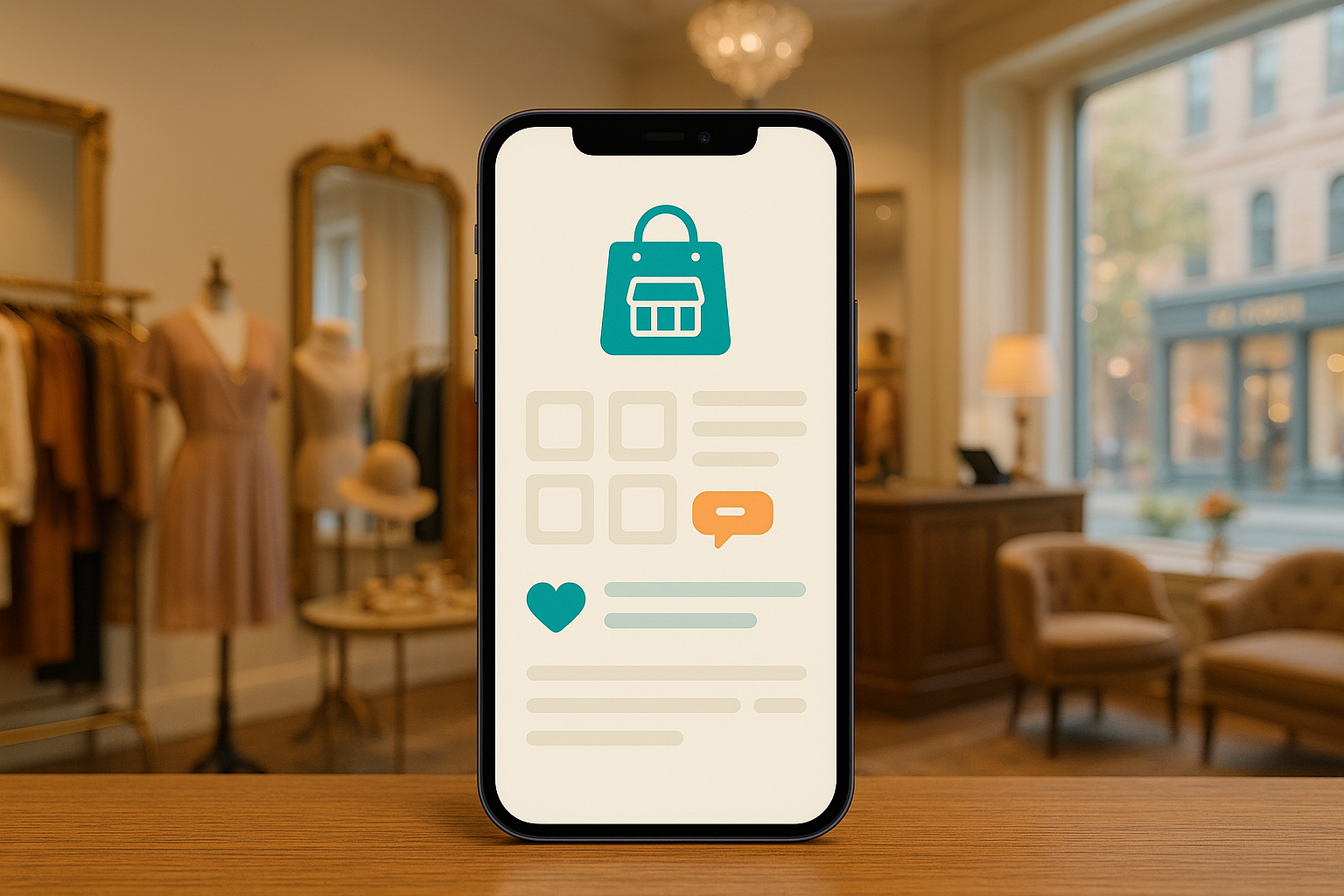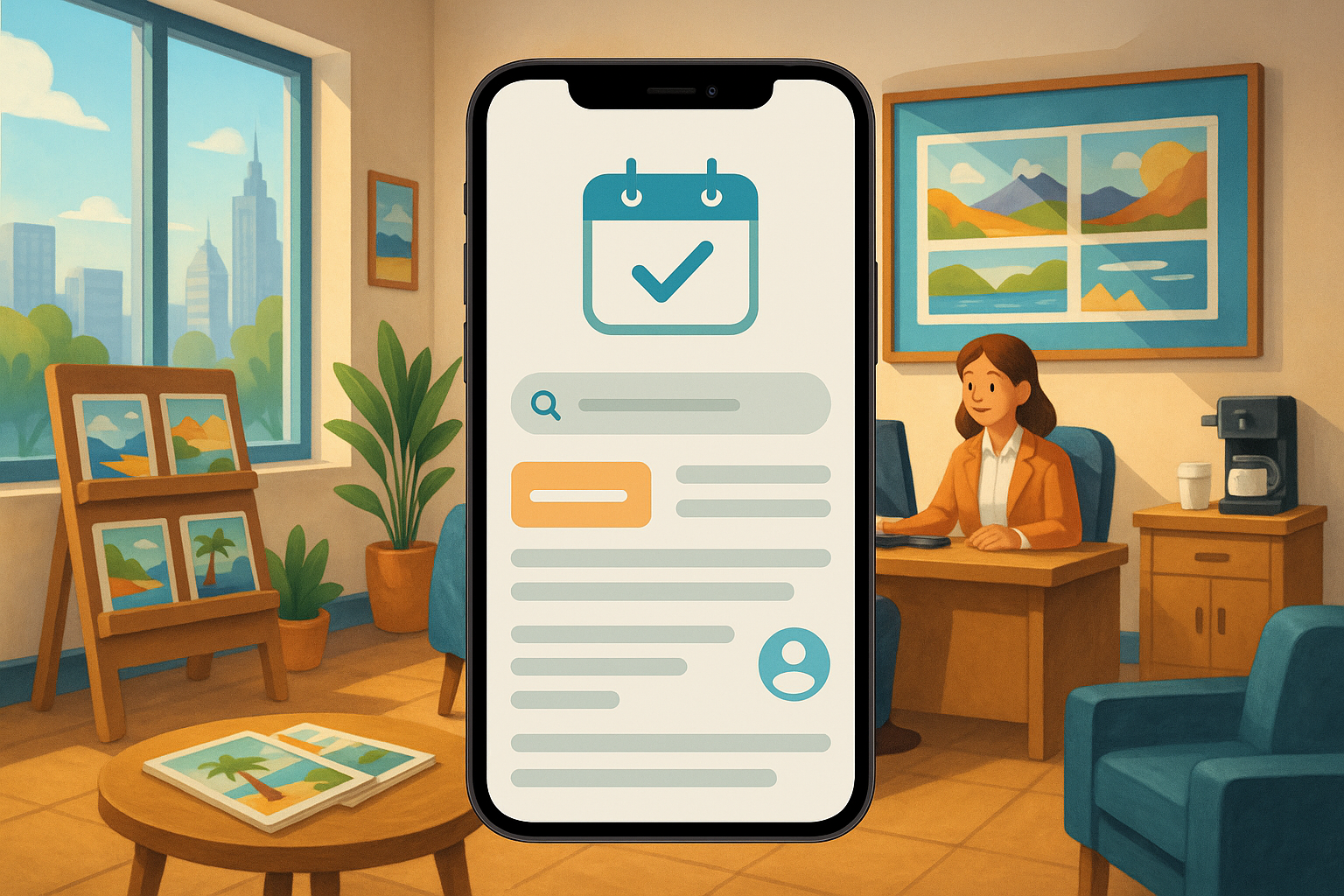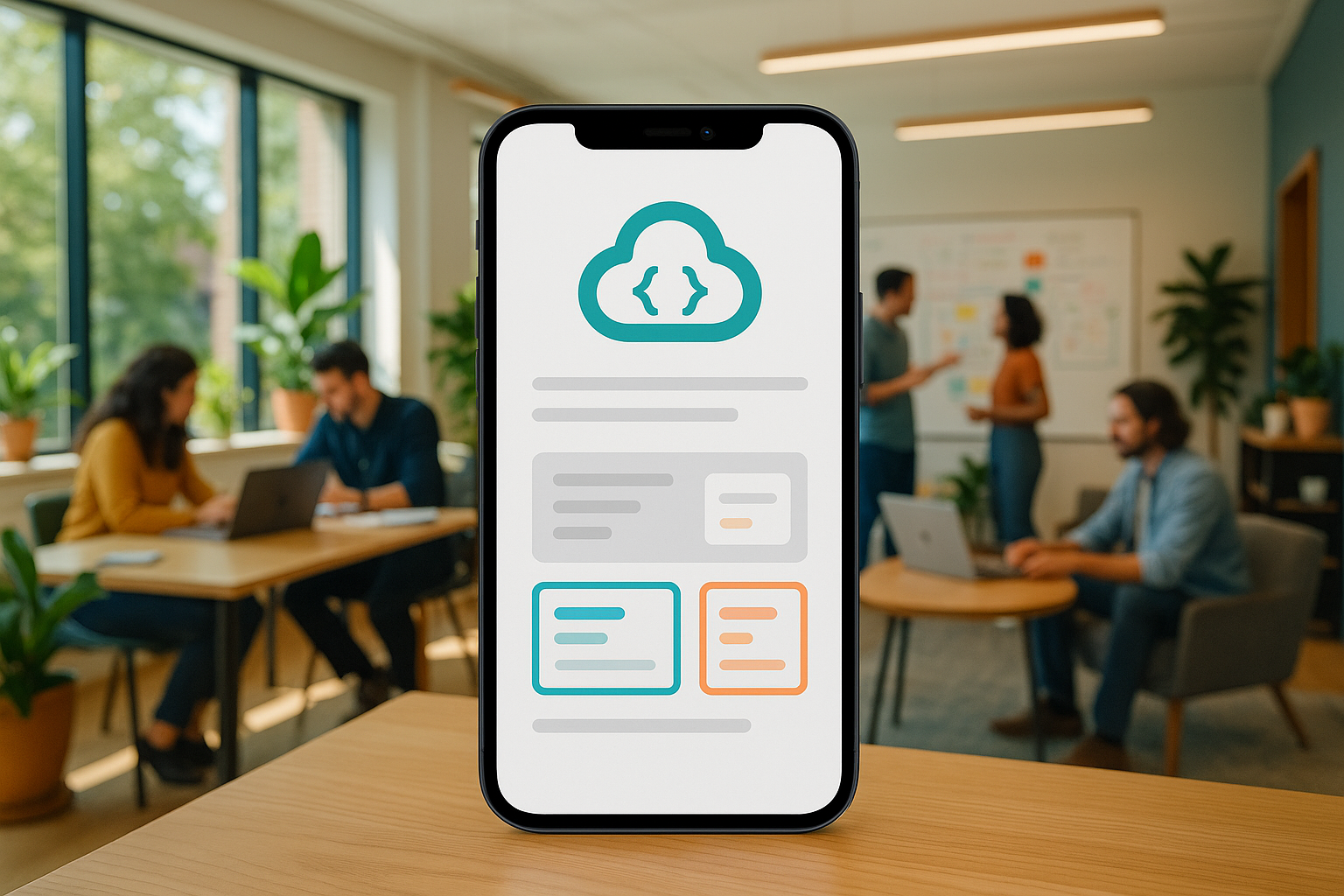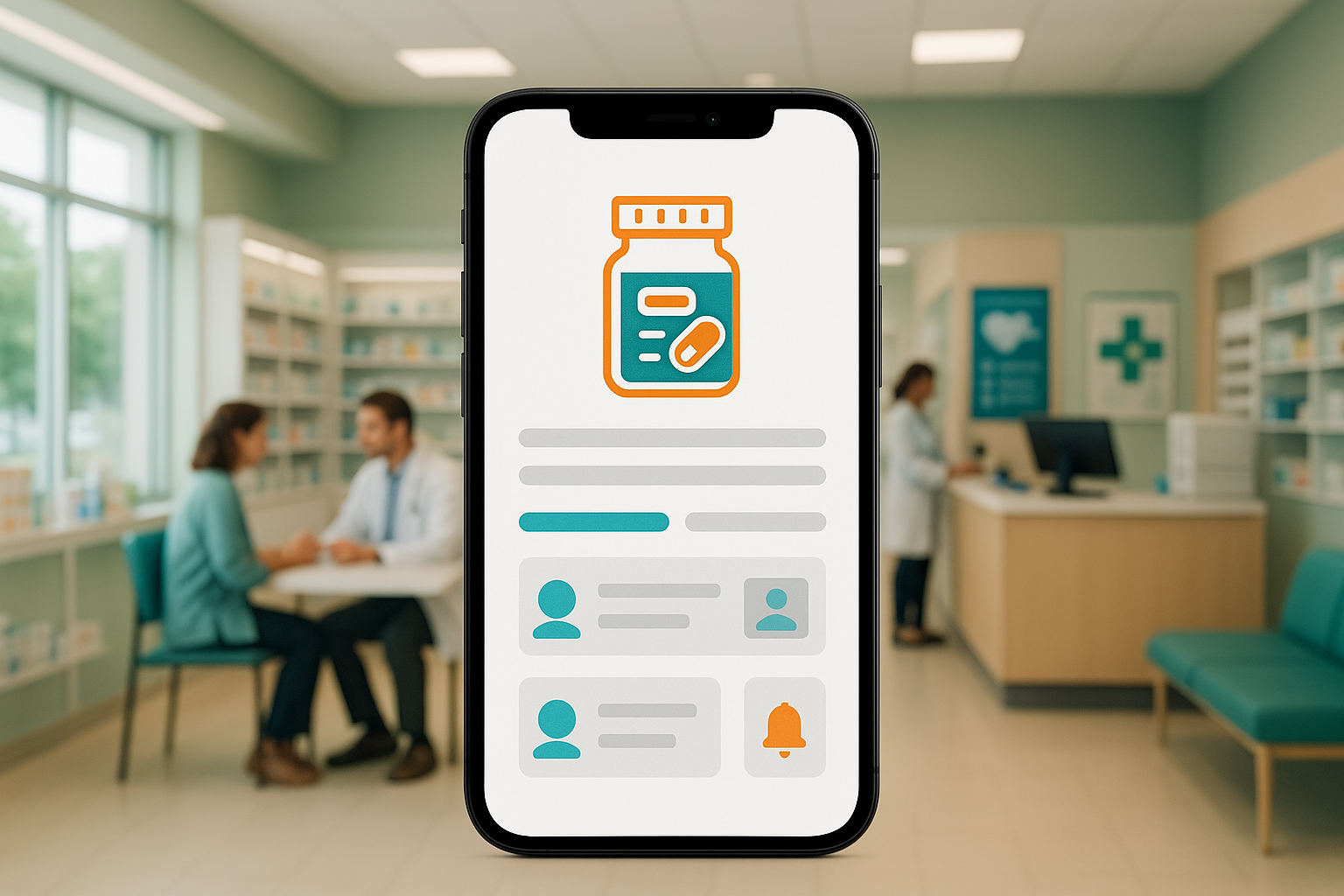Introduction: Navigating the Complex World of Boutique App Development
In today’s competitive retail landscape, boutique owners are constantly seeking innovative ways to connect with customers, foster loyalty, and drive sales. A dedicated mobile application has emerged as a premier tool to achieve these goals, offering a direct and personalized channel to a brand’s most dedicated followers. However, the path from concept to a fully functional, high-performance app is fraught with technical, financial, and operational hurdles. Many entrepreneurs find themselves facing the daunting challenge of building a sophisticated piece of software with limited resources and experience, a venture that can quickly become overwhelming.
This article serves as a comprehensive guide to the world of boutique app development. We will demystify the process by exploring what a boutique app truly is, delving deep into the significant difficulties of attempting to build one in-house, and providing a realistic look at the potential costs involved. Furthermore, we will identify what distinguishes top-tier development companies and show you how to select the right partner for your project.
As a top US AI-powered app development firm with over 20 years of experience, we at MetaCTO have successfully guided over 120 projects from idea to launch and beyond. We specialize in transforming ambitious visions into market-ready mobile apps that not only function flawlessly but are designed to grow, engage, and monetize. This article will leverage our deep expertise to provide you with the clarity needed to make informed decisions, avoid common pitfalls, and ultimately, build an app that becomes a cornerstone of your business’s success. Whether you are just beginning to explore the idea or are ready to find a technical partner, this guide will provide the insights you need.
What is a Boutique App?
At its core, a boutique app is far more than a digital novelty; it is a powerful and strategic sales channel. Unlike a mobile website, which is a responsive version of a desktop site, a boutique app is a standalone piece of software designed specifically for a mobile operating system like iOS or Android. This fundamental distinction is crucial because it unlocks a host of capabilities that are simply not available through a web browser.
The fact that it is a native mobile app is what gives it its power. Native development means the app is written in the specific programming language of the device’s platform (like Swift for iOS or Kotlin for Android). This results in several key advantages:
- Superior Performance: Native apps are faster and more responsive because they have direct access to the device’s hardware and APIs. This means smoother animations, quicker loading times, and a more fluid user experience—critical factors for keeping customers engaged.
- Enhanced User Experience (UX): A native app is built according to the specific design guidelines of its platform (e.g., Apple’s Human Interface Guidelines). This creates an intuitive and familiar interface for users, reducing the learning curve and making the app a pleasure to use.
- Access to Device Features: Native apps can fully leverage a device’s features, such as the camera, GPS, contact list, and, most importantly, push notifications. Push notifications are a game-changer for a boutique, allowing for direct, immediate communication with customers about new arrivals, exclusive sales, or flash promotions, driving traffic and sales in a way that email marketing often cannot.
- Offline Functionality: While an internet connection is needed for most e-commerce functions, native apps can be designed to offer offline access to certain features, such as a wishlist or saved items, providing value to the user even with a spotty connection.
By being a dedicated sales channel on a customer’s phone, a boutique app creates a persistent brand presence. It eliminates the need for a customer to open a browser, type in a URL, and navigate a website. Instead, your boutique is just a single tap away. This direct line of communication and seamless shopping experience fosters a deeper sense of community and loyalty, turning casual shoppers into dedicated brand advocates.
Reasons It Is Difficult to Develop a Boutique App In-House
While the allure of maintaining complete control over a project can make in-house development seem attractive, the reality is often a minefield of unforeseen challenges, spiraling costs, and significant delays. For a business whose core competency is retail, not software engineering, venturing into app development can divert critical resources and attention away from what the business does best. Here is a detailed breakdown of the substantial difficulties involved.
The Monumental Task of Assembling a Team
The first and most significant hurdle is that you must bring a development team together. This is not as simple as hiring a single developer. A robust mobile app requires a team of specialists with distinct skills: UI/UX designers, iOS developers, Android developers, backend engineers, a quality assurance (QA) tester, and a project manager to coordinate it all.
- The Hiring Gap: Even if your company is fortunate enough to have employees with some app development experience, you will most likely have to bring in new people to fill the gaps. The specific skills needed for native mobile app development are highly specialized and rarely found in a typical IT department.
- A Long and Expensive Process: Finding and hiring these experts is both a long and expensive process. The tech talent market is incredibly competitive. You will spend considerable time and resources on job postings, recruiter fees, extensive interview rounds, and technical assessments to find qualified individuals who are also a good cultural fit for your company.
- Costly Onboarding and HR: Once hired, the costs continue to mount. Each new recruit requires a lengthy onboarding process to get them up to speed on your company’s vision and goals. Furthermore, they will need to be set up with HR and payroll, which can be extremely costly, adding to your overhead with salaries, benefits, taxes, and other administrative burdens.
The Perils of Team Dynamics and Inexperience
Simply assembling a group of individuals does not instantly create a cohesive, high-functioning team. This transition can be a bumpy process fraught with challenges.
- Growing Pains: New recruits have likely never worked alongside your current team, which means growing pains may be a natural part of acclimating to one another. This period of adjustment can be marked by new personalities, conflicting ideas, and different strengths and weaknesses, all of which can slow down progress and create friction.
- Lack of Specialized Expertise: An in-house team, particularly one assembled quickly, may lack extensive experience in app development. They may not fully understand app development requirements or possess a deep understanding of market trends compared to a dedicated agency of specialists. This lack of expertise is a significant risk that can lead directly to extra costs and time delays.
- The Cost of Mistakes: If your in-house team is not well-versed in the unique challenges of mobile app development, such as platform-specific bugs, App Store submission guidelines, or backend scalability, the cost of development could spike. You might find yourself in a position where you would have to hire external experts to solve specific and ongoing challenges anyway, defeating the purpose of keeping the project in-house.
The Financial and Logistical Burdens
Beyond personnel, in-house development carries a heavy financial and logistical weight that is often underestimated.
- Hidden Costs: You will likely need to invest in new software licenses and certificates for proper app development. This includes licenses for design software, development environments (IDEs), project management tools, and the necessary developer certificates from Apple and Google to publish on their stores.
- The Trap of “Full Control”: When you develop an app in-house, you have full control, which also means full responsibility. The task of creating and overseeing an in-house development team is a full-time job in itself, pulling focus from other critical business functions. The parent company, despite its oversight role, does not always have full control over the day-to-day development operations, especially without deep technical knowledge.
- Endless Revisions and Delays: With an in-house team and flexible timelines, companies can easily fall into the trap of spending too much time tweaking, modifying, and second-guessing decisions. This cycle of excessive revisions will delay meaningful progress and may lead to serious issues with launching the app on time.
- Higher Risk of Failure: Ultimately, because of all these combined factors—inexperience, management overhead, and potential for delays—there is a higher risk that an in-housedeveloped app will fail, representing a total loss of a significant investment.
Building a successful app in-house requires a long-term strategy, the right technical resources, and a substantial budget to be a great option. For most boutiques, partnering with an experienced agency like MetaCTO removes these barriers, providing immediate access to a vetted, cohesive team of experts and a proven process for success. With a service like our Rapid MVP Development, you can de-risk the entire process and get to market in 90 days.
Cost Estimate for Developing a Boutique App
Understanding the financial investment required is a critical step in planning your boutique app. While a precise figure depends on the complexity and feature set, we can establish a baseline by examining the costs associated with professional design and development. The data shows that quality comes at a price, and attempting to cut corners, especially in the design phase, can be detrimental to the app’s success.
A crucial initial stage is the Professional App Design, which lays the visual and experiential foundation for the entire project. According to industry data, a Professional App Design by a high-quality app development agency or top mobile app freelancer will take 160+ hours. This is not just about creating pretty screens; it involves user research, wireframing, prototyping, user flow mapping, and creating a complete design system. Consequently, the total cost for this foundational design work is more than $9,600.
It is essential to understand that this is a starting point. The app development cost could be way higher, depending on the app complexity. Features like personalized recommendations, loyalty programs, live chat support, augmented reality try-ons, or complex backend integrations will all add to the development timeline and, therefore, the overall cost.
Interestingly, top-tier professional design teams from an agency can take anywhere from 2 to 4 times longer than a single custom designer working in a vacuum. This may seem counterintuitive, but these extra hours are necessary and valuable. They are spent on a rigorous feedback process between the project manager, designer, and you, the client. This collaborative approach requires more cycles of iteration and refinement, but it ensures that the final design is not only aesthetically pleasing but also strategically sound, user-tested, and perfectly aligned with your business goals. Investing in this thorough process upfront prevents costly redesigns and development changes down the line, ultimately leading to a superior product that resonates with your customers.
Top Boutique App Development Companies
Choosing the right development partner is arguably the most important decision you will make in your app development journey. A true partner does more than just write code; they provide strategic guidance, technical expertise, and a commitment to your success. Platforms like DesignRush help businesses navigate this choice by ranking the top boutique app development companies based on stringent criteria.
These top-tier firms are distinguished by several key characteristics. They are well-versed in the latest technologies and frameworks, ensuring your app is modern, scalable, and secure. They typically offer personalized experiences with smaller, dedicated teams, providing a level of attention and collaboration that larger, more impersonal firms cannot match. Their primary goal is to meet your specific requirements with a custom-built solution.
The credibility of such rankings is paramount. DesignRush, for instance, employs a strict screening process for featured companies, assessing key performance indicators like portfolio, client reviews, and industry reputation. The reviews themselves undergo a stringent verification process to ensure you are reading reliable information from verified past clients. This rigorous vetting provides a layer of trust and transparency, helping you identify truly exceptional partners.
While DesignRush lists 220 companies, the key is to find the one that is the right fit for you. Here is a look at what you should be looking for, with a spotlight on how we at MetaCTO embody these principles.
-
MetaCTO
As a leading AI-powered mobile app development firm, we combine the personalized, hands-on approach of a boutique agency with the deep technical expertise of a seasoned technology partner. At MetaCTO, our mission is to Build, Grow & Monetize Mobile Apps, guiding you through every stage of the lifecycle. We don’t just build apps; we build businesses. With 20 years of app development experience and over 120 successful projects under our belt, we have a proven track record of delivering results, evidenced by our 5-star rating on Clutch.
What sets us apart is our integrated, AI-enabled approach. We leverage artificial intelligence to create smarter, more personalized user experiences and provide you with a competitive edge. Our structured process—Validate, Build, Grow, Monetize, and Evolve—ensures a clear path from concept to a scalable, profitable app. We specialize in turning big ideas into reality, whether it’s through our flagship Custom Mobile App Development service or our accelerated 90-day MVP program for startups looking to launch quickly. We are the expert partner who can transform your vision into an app that is better than you could have imagined.
-
Other Top-Tier Companies
When evaluating other companies, you should apply the same rigorous standards. Look for firms with a strong, verifiable portfolio of apps similar to what you envision. Scrutinize their client testimonials and reviews, paying close attention to comments about communication, project management, and their ability to meet deadlines and budgets. A top company will be transparent about its process and eager to share its past successes. Ensure they have a dedicated team that will be assigned to your project and that you have a direct line of communication with the project lead. The best partners act as an extension of your own team, fully invested in achieving your business objectives.
Conclusion: Build Your Boutique App the Right Way
Embarking on the journey of developing a mobile app for your boutique is a significant but potentially transformative step for your brand. We have seen that a well-executed app is not just another piece of technology but a powerful, native mobile sales channel capable of fostering unparalleled customer loyalty and driving direct revenue.
However, the path is not without its challenges. We have explored in detail the immense difficulties and hidden costs associated with in-house development—from the arduous and expensive process of hiring and managing a team to the significant risks posed by a lack of specialized expertise. The financial investment is also substantial, with professional design alone representing a five-figure cost before a single line of code is written.
This guide has illuminated that the key to success lies not in trying to become a software company overnight, but in finding the right expert partner. Choosing a top-tier development company mitigates the risks of in-house development and provides you with a clear, strategic path forward. It gives you access to a cohesive team of specialists, a proven development process, and the peace of mind that comes from working with professionals who have successfully navigated this journey many times before.
At MetaCTO, we are dedicated to being that partner. Our blend of boutique-style personalized service, deep technical and AI expertise, and a steadfast focus on your business goals ensures your project is in the best possible hands. Don’t let the complexities of app development hold your business back.
Talk with a Boutique app development expert at MetaCTO today to discuss your vision and learn how we can help you build your app the right way, from day one.






